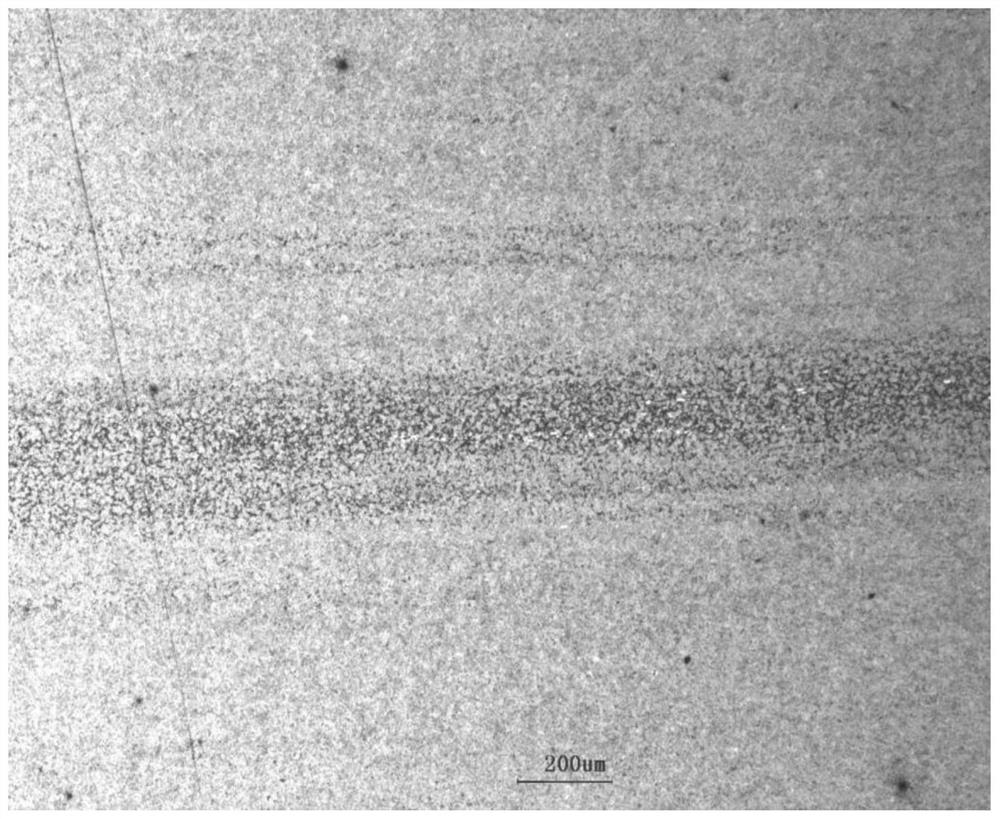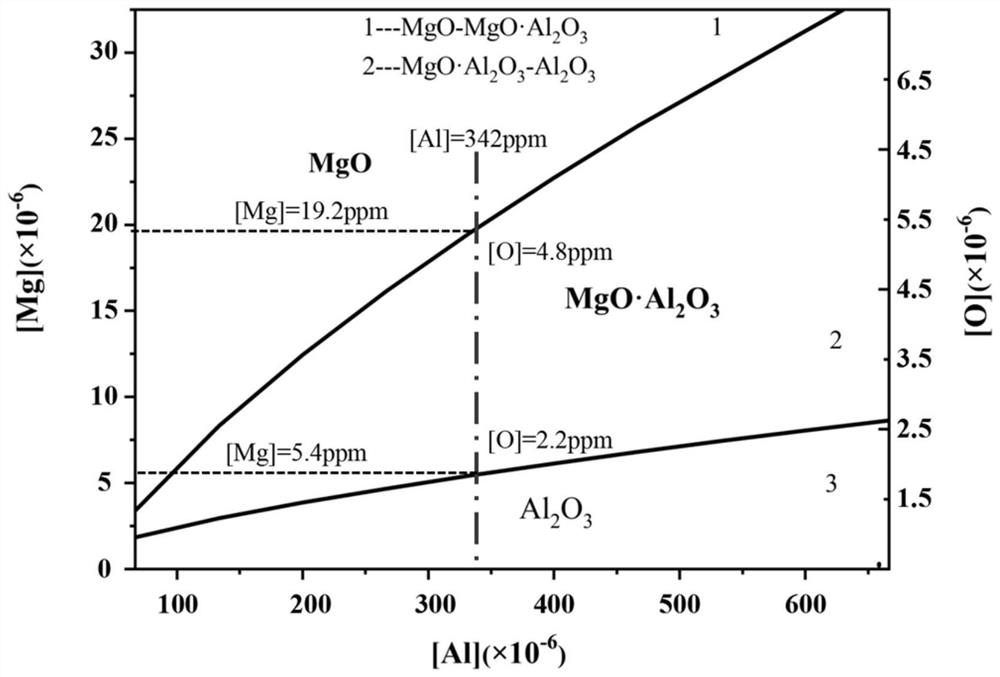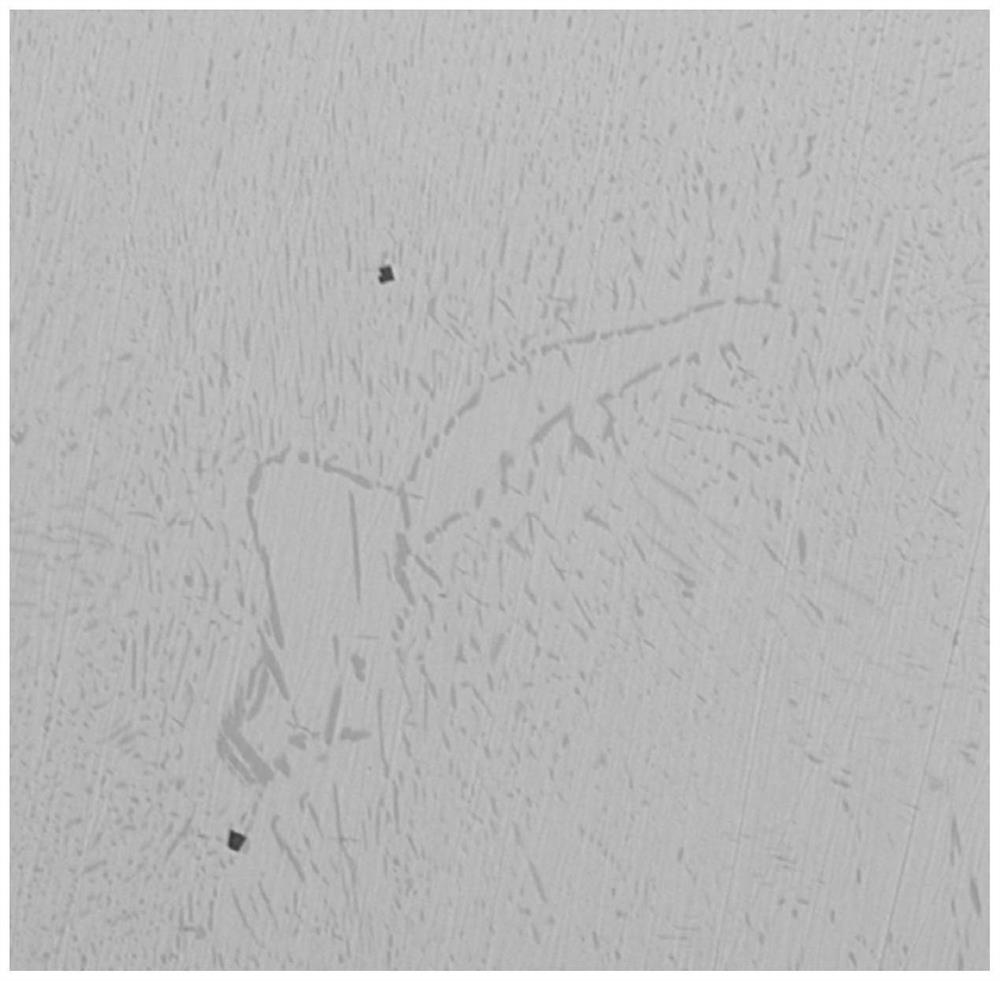A method for modifying carbides of martensitic valve steel
A martensitic and valve steel technology, applied in the field of modified martensitic valve steel carbides, can solve the problems of reducing the uniformity of the structure and hardness, increasing the tendency of deformation and cracking, and deteriorating the mechanical properties, and improving the segregation. , the effect of improving quality and increasing yield
- Summary
- Abstract
- Description
- Claims
- Application Information
AI Technical Summary
Problems solved by technology
Method used
Image
Examples
Embodiment 1
[0060] The present embodiment provides a method for modifying carbides of martensitic gas valve steel, which includes the following steps: sequentially electric furnace smelting, AOD furnace smelting, LF furnace refining, continuous casting, rolling and Pickling to obtain the modified martensitic gas valve steel; among them, in the final stage of molten steel refining in the LF furnace, after the molten steel temperature and composition are adjusted in place, the addition process of magnesium-containing cored wire is carried out, and in the electric furnace smelting, The oxygen content of the molten steel is reduced to below 300ppm; when the AOD furnace is smelting, the basicity of the steel slag is greater than 5, and the active oxygen at the end of the AOD furnace smelting is less than 100ppm.
[0061] At the end of LF furnace refining, before the magnesium-containing cored wire is fed, the basicity of the steel slag layer is 4.5. At the same time, the white slag production t...
Embodiment 2
[0066] The method for modifying the carbides of martensitic gas valve steel in this embodiment includes the following steps: sequentially smelting the martensitic gas valve steel raw materials by electric furnace, AOD furnace smelting, LF furnace refining, continuous casting, rolling and Pickling to obtain the modified martensitic valve steel. The difference between this implementation and Example 1 is:
[0067] At the end of the smelting stage of the LF furnace, the basicity of the slag layer was 4.5, and the time for making white slag was 30 minutes. At the end of the smelting stage of the LF furnace, the oxygen activity of the molten steel during tapping was 4.5ppm.
[0068] The oxygen activity of the molten steel in the final stage of LF refining in this example is higher than that of Example 1, and most of the carbides in the produced heat-resistant steel are distributed at 12-30 μm.
Embodiment 3
[0070] The method for modifying the carbides of martensitic gas valve steel in this embodiment includes the following steps: sequentially smelting the martensitic gas valve steel raw materials by electric furnace, AOD furnace smelting, LF furnace refining, continuous casting, rolling and Pickling to obtain the modified martensitic valve steel; the difference between this implementation and Example 1 is:
[0071] At the end of the LF furnace refining, the basicity of the slag layer is 3. When the steel is tapped at the end of the LF refining, the oxygen activity of the molten steel is 5.5ppm.
[0072] In this example, the basicity of the slag layer during the refining period of the LF furnace is lower than that of Example 1, resulting in high oxygen activity during tapping, and the average size of carbides in the produced heat-resistant steel is 15-35 μm.
[0073] It can be seen from Example 2 and Example 3 that the higher the basicity of the slag in the final stage of LF furna...
PUM
| Property | Measurement | Unit |
|---|---|---|
| oxygen content | aaaaa | aaaaa |
| thickness | aaaaa | aaaaa |
| size | aaaaa | aaaaa |
Abstract
Description
Claims
Application Information
 Login to View More
Login to View More - R&D
- Intellectual Property
- Life Sciences
- Materials
- Tech Scout
- Unparalleled Data Quality
- Higher Quality Content
- 60% Fewer Hallucinations
Browse by: Latest US Patents, China's latest patents, Technical Efficacy Thesaurus, Application Domain, Technology Topic, Popular Technical Reports.
© 2025 PatSnap. All rights reserved.Legal|Privacy policy|Modern Slavery Act Transparency Statement|Sitemap|About US| Contact US: help@patsnap.com



